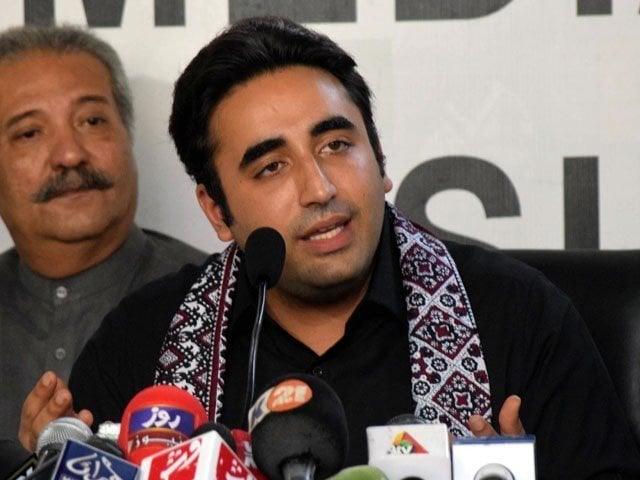Pakistan Peoples Party (PPP) Chairman Bilawal Bhutto Zardari has strongly criticized the Pakistan Muslim League – Nawaz (PMNL-N) led federal government for taking ‘unilateral decisions without consulting its political allies’ and warned that such actions cause unnecessary challenges for Pakistan. administration.
Speaking at an event in the federal capital, Bilawal Bhutto emphasized the importance of consensus-based policy-making and stressed that Pakistan’s political system thrives when the government listens to the people and collaborates with key stakeholders.
“When the government makes decisions without consulting its allies or taking into account the wishes of the public, it ends up complicating the situation for itself,” he noted.
The PPP leader also recalled the party’s longstanding support for workers’ rights and the struggle for Pakistan’s working class.
He noted that the efforts of three generations of PPP leaders have led to the establishment of significant rights for the nation’s workers, beginning with the historic contributions of his grandfather, Zulfikar Ali Bhutto, who helped secure the Constitution, and continuing with the leadership of his grandfather. late mother, Benazir Bhutto, who stood firm against military dictatorship.
Bilawal Bhutto also emphasized that PPP’s legacy of fighting for democracy, labor rights and human rights was a continuous effort even under the rule of military dictators like General Zia-ul-Haq and General Pervez Musharraf.
He praised the PPP for consistently promoting the agenda of the working class, adding that the party was the first to introduce a comprehensive labor market policy in Pakistan and has continued to advocate for fair wages and pensions.
In his speech, the PPP chairman also delved into the broader theme of political legitimacy, saying that no government can function without the support and consent of the people.
“Whether you are prime minister, president or even a monarch, any system depends on the will of its people,” he said.
“If a government moves away from the wishes of the people, it destabilizes the whole system.”
Blawal warned that Pakistan’s current political environment was characterized by a lack of dialogue and top-down decision-making.
“When decisions are made unilaterally, they are more difficult to implement and the results are often less successful,” he said.
“On the other hand, when decisions are made through consensus and consultation with all stakeholders, including opposition and coalition partners, they are easier to implement and have a better chance of success.”
The PPP leader called for a return to the principle of consensus politics, citing the example of his grandfather, Zulfikar Ali Bhutto, who, despite having the majority in parliament, chose to create a democratic system based on national consensus.
“He had the mandate to implement his own policy, yet he chose to build consensus and secure an agreement that ensured the stability of the system,” Bilawal noted.
He expressed concern that the current government, even though it does not have the same majority, sometimes behaves as if it has a two-thirds majority and dictates policy without consultation.
He called on the ruling party to prioritize consultation with elected officials as well as opposition parties for a more effective and stable political environment.
Bilawal Bhutto concluded his remarks by reiterating the PPP’s commitment to a politics of unity and issue-based discussions rather than division and hatred.
He lamented that Pakistan’s current political climate is focused more on personalities and less on tackling the real challenges facing the nation.
“We are committed to politics on issues, not hatred and division,” he said. “Unfortunately, at present, the political discourse is drifting away from key issues affecting the people of Pakistan.”



